
Simplifying Financial Confusion
LEARN CASH FLOW HACKING TO REACH FINANCIAL FREEDOM
Used by 90% of millionaires to reach their financial goals 4x faster
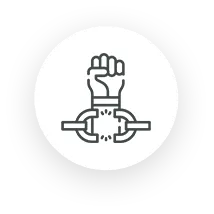
Achieve Financial Freedom Through Cash Flow Hacking
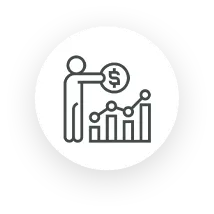
Increase Your Lifestyle While You Build Your Wealth
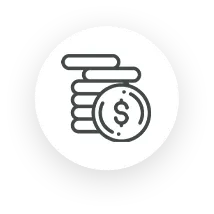
Position Yourself to Thrive in Market Downturn
YOU SHOULD NOT FEEL OUT OF CONTROL ABOUT YOUR FINANCIAL STRATEGY

Have easy access to your money in case of emergencies and opportunities

Use the investment strategy 90% of millionaires use

You deserve a clear plan to consistently grow your money and avoid market uncertainty

Have a guide and advisor that has your best interest in mind

Do not overpay in taxes

Stop guessing at the best vehicles to protect and grow your money
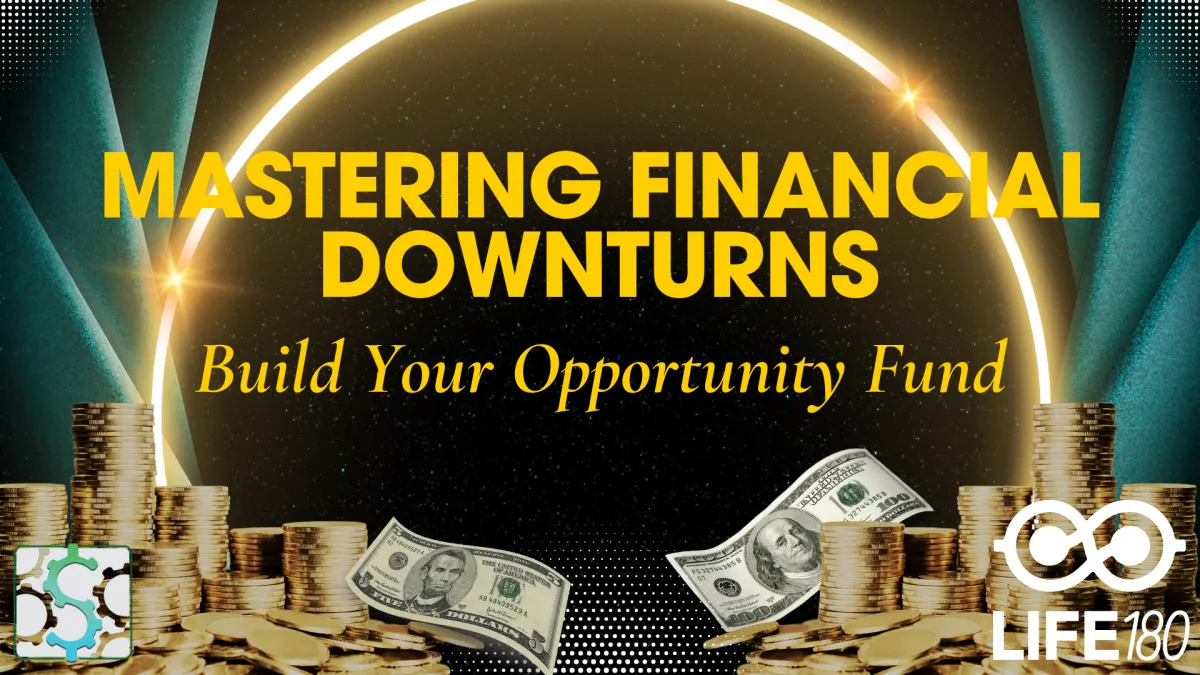
Mastering Financial Downturns: Build Your Opportunity Fund
This article is a written adaptation of the audiovisual content available on our YouTube channel, LIFE180.
Financial markets are at an all-time high. At the same time, P/E ratios and company valuations are at the highest levels we've seen since the Great Depression. Credit card debt is soaring, and savings rates are plummeting. It is only a matter of time before financial markets correct, and this correction will either create a lot of pain or potentially a lot of opportunity.
So, the question is: are you prepared to transform financial lows into wealth-building highs? Here’s a free step-by-step roadmap that will guide you in dissolving your burdensome debt, enhancing your creditworthiness, and amassing a reserve of funds, or an "opportunity fund," as I call it, that will empower you to capitalize on the financial downturn that I believe we are inevitably going to see sooner rather than later.
Envision yourself snatching up prime investments while others are in fiscal distress. I always love to draw on Warren Buffett's tactic of being greedy when others are fearful.
Intro Strategies for Financial Downturns
I'm going to walk you through pragmatic steps to guard against and prosper from future market dips and recessions. So be sure to stay vigilant to master your monetary fate and learn how to flourish in the face of any economic conditions like these.
We are going to be talking about the three-step formula you need to build your opportunity fund and be prepared for what's coming down the pipeline. So, without further ado, let's jump right into it.
Step 1: Pay Down Toxic Debt
Step one, and it's not going to be a surprise, is to dissolve your toxic debt. Consider your toxic debt as a weight that drags down your fiscal momentum. This burden will thwart your ability to ascend to the financial peaks you aim to reach. Many people think about this issue but often have a hard time defining what toxic debt is and understanding why it's so destructive.
So let's talk about that. Toxic debt consists of loans or credit with steep interest rates that sap your financial strength and hinder your fiscal agility. The typical culprits of toxic debt include credit card balances, predatory payday loans, high-interest personal lines of credit, and similar obligations.
Such debts come armed with crippling interest rates that trap you in an endless loop of paying the bare minimum, barely cutting into the principal. This is why it is so essential to prioritize paying down toxic debt first. My suggestion is to kickstart your toxic debt elimination by utilizing one of these strategies.
The first strategy is to spot and strategize. Start by tallying all your debts and arranging them by interest rate. Obviously, the higher the interest rate, the more toxic the debt is under this philosophy. You want to aggressively address those with the highest interest rates first, paying them down as quickly as possible.
The next strategy is cash flow indexing. For cash flow indexing, you want to take the amount of the loan and divide it by your monthly payment. I have a lot more content on how to follow this strategy, and while it requires a bit more savvy, it's my favorite method and the best when it comes to managing cash flow.
The general rule of thumb is to take the monthly payment, divide it by the amount that you owe, and that will give you a cash flow indexing number. If the cash flow indexing number is high, then it indicates a healthier debt.
The lower the number, the more toxic the debt. Any loan with a cash flow index number under 50 is what I would consider toxic. Therefore, you should prioritize paying off the loans with the lowest numbers first.
Conversely, any debt with a cash flow index above 100 is probably not so toxic. In fact, you could potentially view it more as an investment type of debt.
So, while those are the two main methods to eliminate toxic debt, there are also some actions you can take. The first action would be rate reduction. By engaging with your lenders and discussing lower rates, you might be surprised at what you can accomplish.
You should never underestimate the potential power and impact that a straightforward conversation could have on your wallet. At the end of the day, clearing away this toxic debt not only solidifies your fiscal defenses but also liberates your valuable capital for investing during the fiscal downturns we've been discussing.
Step 2: Build Your Credit Score
Step two is to strengthen and build your credit score. Possessing a robust credit score offers you a huge financial edge. It is absolutely your key to favorable loan terms, lower interest payments, and a broader economic horizon. I've got a lot of content on how to build your credit score, but here's a brief summary of some things you can do to improve your credit rating right now.
First, punctual payments, be on time. Timeliness is non-negotiable when it comes to your credit. Late payments are detrimental to your credit score, so use any credit app that helps you track this. I use Credit Karma; I think it's a great tool. It will tell you what your on-time payments are, and you want to get that number as close to 100% as possible.
You want to optimize your credit card use. To do this, make sure that you maintain your credit card balances well below 30% of your limits. If you exceed 30%, your score will go down. I want to caution you, many people think they need to get more credit to improve their score. However, each credit check can actually dent your score in the short term.
So, apply for new credit sparingly and be judicious about the process and the type of credit you actually apply for. As I mentioned before, I love using Credit Karma because monitoring your credit, tracking your payments, and being able to audit your credit report on a monthly basis is absolutely essential. Any challenges or errors you uncover on your report should be reported and dealt with as promptly as possible.
I can't stress this enough: a better credit score sets you up for superior investment opportunities, especially when the financial climate is uncertain and credit quality can open doors. Remember, when other people are struggling, their credit scores may drop. If you can maintain a higher credit score, you'll be way ahead of the pack.
Step 3: Amass Liquid Capital
You need to amass some liquid capital. I know a lot of people don't like to focus on this because it may feel like the hardest part, but you need to think of liquid capital as your fiscal parachute, ready for deployment at a moment's notice. You need to have readily available funds or equivalents that can be liquidated swiftly without penalties or losses.
So, some of the things you can do to grow your opportunity fund include automating savings. Set up a fixed transfer from the account where you receive your earnings, such as your checking account, into a savings account. This will help cultivate your reserves without requiring you to think about it.
Expenditure pruning is absolutely key. Go through and examine your monthly budget, see where you're spending money, and identify all non-essential items. Then, eliminate those expenses.
Diversify your income. Sometimes your greatest need is simply more cash flow. Pursue extra revenue streams like freelance gigs or part-time employment so you can build up your reserve capital. It'll be worth it.
Here's the bottom line: your ability to wield liquid capital during market hardships places you in control and separates you from the pack. It will allow you to snatch up investments at deflated prices when others are forced to make poor decisions just to survive.
Now, one of my favorite ways to amass this liquid capital is by utilizing a whole life insurance policy. While many people think of life insurance just as a death benefit, we use whole life insurance as a banking alternative.
The reality is that whole life insurance transcends its conventional reputation as a mere contingency plan.
Using Whole Life Insurance As Your Opportunity Fund
It's also an investment juggernaut under the right circumstances. Let me explain why: as you're clearing up your debt and forming your nest egg, if you utilize whole life insurance as a savings mechanism instead of a traditional savings account, the cash value will accrue within your whole life insurance policy.
You can tap into this to help with your debt clearance. Whole life insurance allows you to accelerate your debt paydown or even refinance your debt into the policy. In my opinion, this is one of the financial industry's best-kept secrets.
The cool part about whole life insurance, unlike a savings account, is its tax-efficient wealth accumulation. You'll enjoy tax-sheltered growth and have tax-free access to that money through loans or withdrawals of the cost basis and policy loan.
You also benefit from tax-efficient wealth accumulation in a whole life policy. Unlike a savings account or a CD where you get taxed on the gains, a whole life policy offers tax-sheltered growth. The money grows tax-free, and you have tax-free access to it through policy loans.
Your whole life insurance policy will also increase your borrowing power. By accessing the cash value in your policy through loans, typically at better rates than those from banks, you'll reduce your cost of capital. This gives you a significant competitive advantage in investments because lower rates increase your purchasing power, allowing you to potentially acquire more assets for the same investment.
And at the end of the day, I love Whole Life Insurance because it provides peace of mind. I call Whole Life Insurance a self-completing plan. It's the only financial tool I know that ensures your desires will be fulfilled as planned, whether you're here to witness it or not. No other asset in the world offers that level of security.
From a high-level perspective, when considering emergency funds and opportunity funds to achieve our financial goals, I believe that whole life insurance is the ultimate no-brainer.
So, to summarize all of this, the first thing we need to do is eradicate our toxic debt. We must free ourselves from compounding and devastating interest rates that hold us back and rejuvenate our process and ability to achieve financial success. Building our credit score is essential; it's believing in our chance to succeed in this endeavor.
As you eradicate that toxic debt, it's crucial to focus intentionally on strengthening your credit score. Increasing your credit score enhances your creditworthiness, which in turn improves loan rates and increases your access to capital when you need it most.
And ultimately, you have to cultivate more liquid capital. However you manage it, take some of the cash flow you free up when paying off that toxic debt and save it. Whether through a side hustle to generate additional cash flow or simply saving as much as possible, building this fund while the market is strong will enable you to capitalize when it's weak.
My belief is that you need to take immediate action on this. If you haven't started yet or if you're not where you want to be financially, the bottom line is that these measures will prepare you for market swings and position you to outperform regardless of economic conditions.
However, there are some things you want to avoid. While you're clearing your debt, make sure not to take on additional high-interest loans. Doing so would be counterproductive to your financial goals.
When you're trying to improve your credit, one common mistake people make is trying to pay off all their debt at once. If you have long-standing, seasoned lines of credit, be cautious about paying them off abruptly. Sometimes, paying off mature lines of credit that you've had for years can actually have a negative short-term impact on your credit score.
When it comes to saving and building up your capital fund, it's crucial to be intentional about how and where you save your money. While having a systematic approach to saving is important, it's also crucial to resist the urge to use your opportunity fund for short-term daily wants. Avoid tapping into it for minor expenses.
Remember, you're saving for significant opportunities. If you stay disciplined in this process, it can transform your financial situation during the next market correction. Hopefully you found value in this. My only call to action for you right now is make sure you just do something about this.
I have budget forms available. You can find the link in the description below. I also offer what I call monthly profit and loss statements, akin to conducting a personal P&L every month. This tool allows you to thoroughly assess your personal finances, identify areas to cut costs, optimize your financial efficiency, and discover ways to make your finances work better for you.
Align Your Money With Your Values & Beliefs
I'm also a big believer in aligning your money with your values and beliefs. One of the reasons people struggle is because they're not clear on their core values. As a result, they react rather than intentionally aligning their money with their life goals.
Below, I'll provide a link to the Values and Beliefs workbook. I want to emphasize that this workbook is free. It's a 13-page process that may take two to three hours to complete. If you're reading this article, I believe this resource is extremely valuable to you.
I strongly urge you to go through that workbook. Whether you work with us or not, whether you engage with any other resources or watch more of my videos, I promise you, going through that workbook will change the direction of your financial life and how you support the people you care about the most.
So, I hope you found value in this article. If you did, please share it with others. I believe it's incredibly important.
Right now, granted, it's 2024, we're coming up into the elections. Some people may feel like things are starting to turn around, anticipating a soft landing. However, I have a different perspective on what's happening in the world right now.
I believe we're heading towards a significant correction. Major economic indicators suggest we're entering a recession, and there's little we can do to prevent it.
Unless every major economic indicator in the world, which has been right 100% of the time, is wrong for the first time in history, I may be wrong on this. But ultimately, I encourage you to take this warning seriously and do your due diligence. Invest the effort for yourself and your family, build your foundation, and prepare for the next opportunity rather than the crisis.
Till next time, have a blessed, inspirational day.
HOW TO START TAKING CONTROL OF YOUR FINANCES BY MAXIMIZING YOUR CASH FLOW AND PROTECTING YOUR ASSETS

1. Schedule Your Free Clarity Call

2. Create a Free Customized Plan
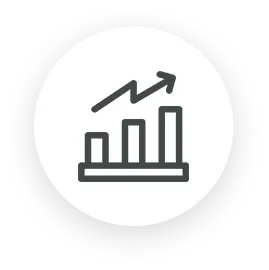
3. Get Guide to Financial Success
GET YOUR FREE COPY TO STOP USING OUTDATED RETIREMENT STRATEGIES
Cash Flow Hacking teaches you to:
Protect Your Investments
Thrive in bad markets
Reach financial freedom faster
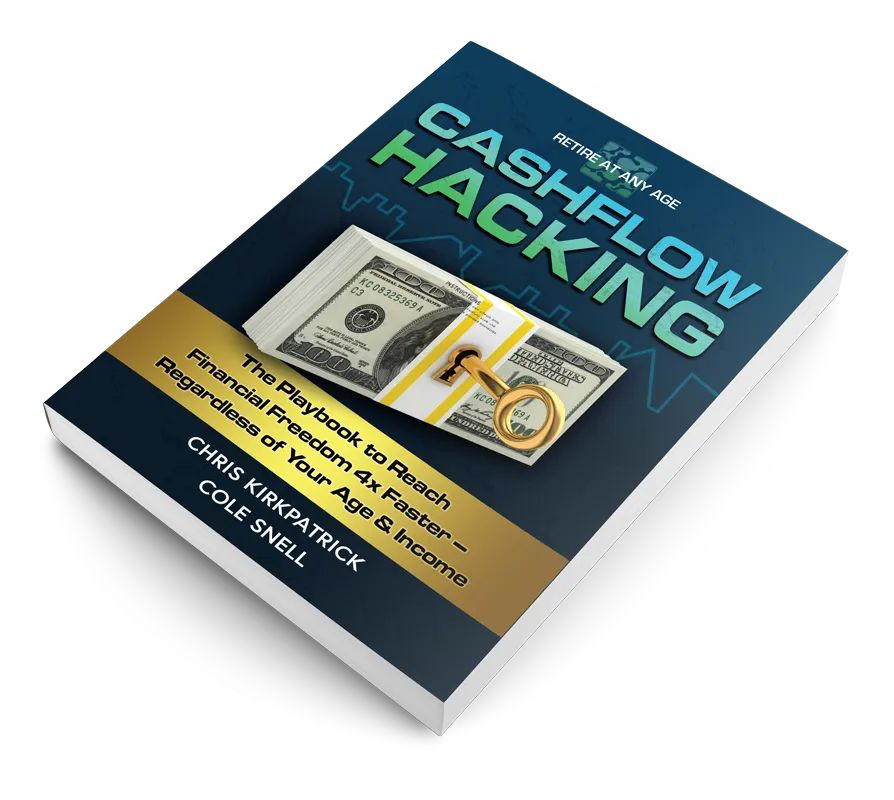
ARE YOU LOOKING FOR:

Cash Flow Hacking teaches you to:
Security to protect your money
Increased cash flow and lifestyle
Inflation protection
Financial certainty in all economic environments
A reduction in taxes
Safe and fast access to your money with no penalties
WHO IS THIS PROGRAM FOR?

People looking for an alternative
Are you looking for alternatives to Wall Street’s “buy and hold” strategy that takes 40 years with uncertain results? Our Cash Flow Hacking strategies provide you the building blocks to get started on the right foot

Passionate Entrepreneurs
Are you looking for a financial strategy that will take your best assets (you and your businesses) and multiply their potential? Our Cash Flow hacking strategies will teach you how to invest for the future without sacrificing building your business

Real Estate
Investors
Are you a real estate investor who is burned out from being a landlord or playing the fix-and-flip game? Our Cash Flow Hacking strategies will provide you with the system to create predictable wealth AND give you the freedom you are looking for.
YOU DESERVE PEACE OF MIND AND A PLAN THAT WILL PROTECT YOUR FAMILY AND GROW YOUR WEALTH
Today you need to be more savvy than ever if you try to go at it alone.
Losing money to inflation, taxes, and just poor investment strategies is leaving you frustrated, feeling out of control and not knowing where to turn. To add to the problem, the market is flooded with advisors who have outdated advice that does not place your best interests first, but instead focuses on charging you a fee that creates guaranteed cash flow for them.
NOT YOU
We believe this is wrong and that your security and best interests should be placed first. We believe you should be in a position where you control your money, your money doesn't control you. We understand because we talk with hardworking people everyday that are losing money in the markets based on old information and feel like they are guessing at the best course of action.
We created the Cash Flow Hacking plan to help you have security and control of your money to take advantage of life's opportunities because you deserve peace of mind with your wealth. The old way of planning for retirement of… Go to school Get a job & save as much as you can in your 401k and mutual funds...is broken.
You have been lied to. Think about it, where else in life does someone tell you that the most certain way to achieve your desired result is to take on more risk? The math just doesn't work, and the results are showing in our country and world. Did you know that 90% of millionaires in the United States have 1 asset in common?
Hint: it's not stocks or mutual funds (and no...it's not crypto) How much sense does it make for you to work hard, save money, reduce your current lifestyle (because that's what you are doing when you save for the future - taking money you could use on lifestyle today and delaying gratification to a future unknown time), and hope that whatever you are doing will work three to four decades from now? If you're thinking, "not much sense at all…", you are in the right place.
With over 50 years of experience on our team, we have worked with thousands of individuals and families to achieve financial freedom faster and with more predictability by helping them invest for Cash Flow.
How does the Cash Flow Hacking Plan work? 1. Take the Cash Flow Hacking Challenge 2. Complete the LIFE180 X-Ray and determine what your Freedom Number is 3. Work with a Cash Flow Hacking expert to provide you a customized plan
The customized Cash Flow Hacking plan will give you clarity on where you are now, where you want to go (and in what time frame), and what you need to do to get there predictably.
We value and commit to you: We believe you deserve the best financial education and guidance We believe financial decisions should not be rushed but be well thought out with a plan We believe you should be in control of your money We believe we earn your trust through time, education, and proper due diligence Without a proper plan and guidance, your money can be lost to taxes, inflation, and bad investments You deserve more with the most up-to-date strategies to mitigate your risk, control your money, and earn stable returns regardless of the market Schedule a call here to attain your LIFE180 Financial X-Ray now or get started with the Cash Flow Hacking Challenge for free.
I am interested in...